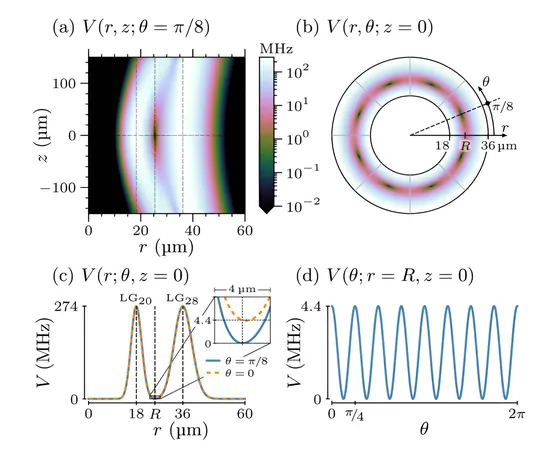
Shocking Truth: Smoking Doubles Lung Cancer Risk for Breast Cancer Survivors Undergoing Radiotherapy!
2024-09-22
Breast Cancer Survivors and the Risks of Smoking
Breast cancer patients who persist in smoking following radiotherapy face a significantly elevated risk of developing lung cancer, a groundbreaking new study reveals.
The Prevalence of Breast Cancer
In the UK, approximately two-thirds of women diagnosed with early-stage breast cancer undergo radiotherapy—a well-established and efficient treatment method. While radiotherapy effectively reduces the likelihood of cancer recurrence and associated mortality, it comes with perilous side effects, including heightened risks of heart disease, lung cancer, and oesophageal cancer.
Breast cancer stands as the most prevalent cancer in the UK, with around 56,400 new cases diagnosed each year, predominantly among women. Alarmingly, it claims nearly 11,500 lives annually, averaging 32 deaths each day.
Research Findings on Smokers vs Non-Smokers
Recent research indicates that non-smoking breast cancer patients have a minimal risk—less than 1%—of developing lung cancer due to radiotherapy. However, those who smoke during treatment and continue with the habit afterwards face a starkly increased risk, ranging between 2% to 6%.
Study Details and Expert Insights
Conducted by Professor Carolyn Taylor from the University of Oxford and funded by Cancer Research UK, this research marks the first of its kind in the UK. "While radiotherapy is highly effective in treating breast cancer and reducing recurrence, it is essential to heed the associated risks. One notable concern is the potential for developing secondary cancers in the years following treatment," Professor Taylor commented.
This increased risk stems from the unavoidable exposure of surrounding tissues, including the lungs, to radiation during breast cancer treatment. The study emphasized that while radiation can effectively destroy cancer cells by damaging their DNA, it may similarly impact healthy cells, leading to the rare possibility of future cancer development.
Comprehensive Analysis
The comprehensive study analyzed findings from 14 prior studies involving thousands of breast cancer patients across the UK, indicating that for the majority of women—non-smokers—the risk remains reassuringly low. "For non-smokers, the risk of lung cancer associated with radiotherapy is below 1%, which should be seen as good news," Taylor elaborated.
Warnings for Long-term Smokers
However, long-term smokers are issued a stern warning. "The risks are significantly higher for those who continue smoking. The data suggests that radiotherapy poses a 2% to 6% increased risk of lung cancer for these patients,” Professor Taylor cautioned.
Call for Awareness and Support
Deborah Arnott, the chief executive of Action on Smoking and Health, echoed these concerns, insisting that smokers undergoing radiotherapy must be clearly informed about the escalating risks of continued smoking. “For any cancer treated with radiotherapy—not just breast cancer—continuing to smoke makes the treatment less effective and more challenging, increasing the likelihood of cancer recurrence,” Arnott added.
As the link between smoking and cancer becomes increasingly evident, experts are calling for better support for patients. It’s clear: the fight against cancer necessitates not only effective treatments but also a firm commitment to quitting harmful habits like smoking. Will this new research spark more initiatives to help breast cancer patients kick the habit for good? Only time will tell!



 Brasil (PT)
Brasil (PT)
 Canada (EN)
Canada (EN)
 Chile (ES)
Chile (ES)
 España (ES)
España (ES)
 France (FR)
France (FR)
 Hong Kong (EN)
Hong Kong (EN)
 Italia (IT)
Italia (IT)
 日本 (JA)
日本 (JA)
 Magyarország (HU)
Magyarország (HU)
 Norge (NO)
Norge (NO)
 Polska (PL)
Polska (PL)
 Schweiz (DE)
Schweiz (DE)
 Singapore (EN)
Singapore (EN)
 Sverige (SV)
Sverige (SV)
 Suomi (FI)
Suomi (FI)
 Türkiye (TR)
Türkiye (TR)